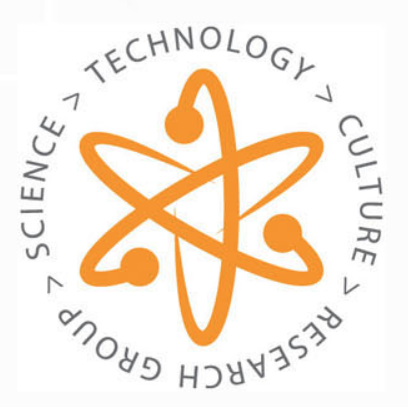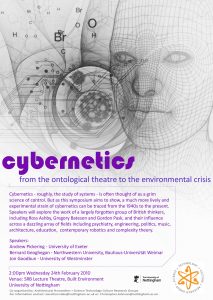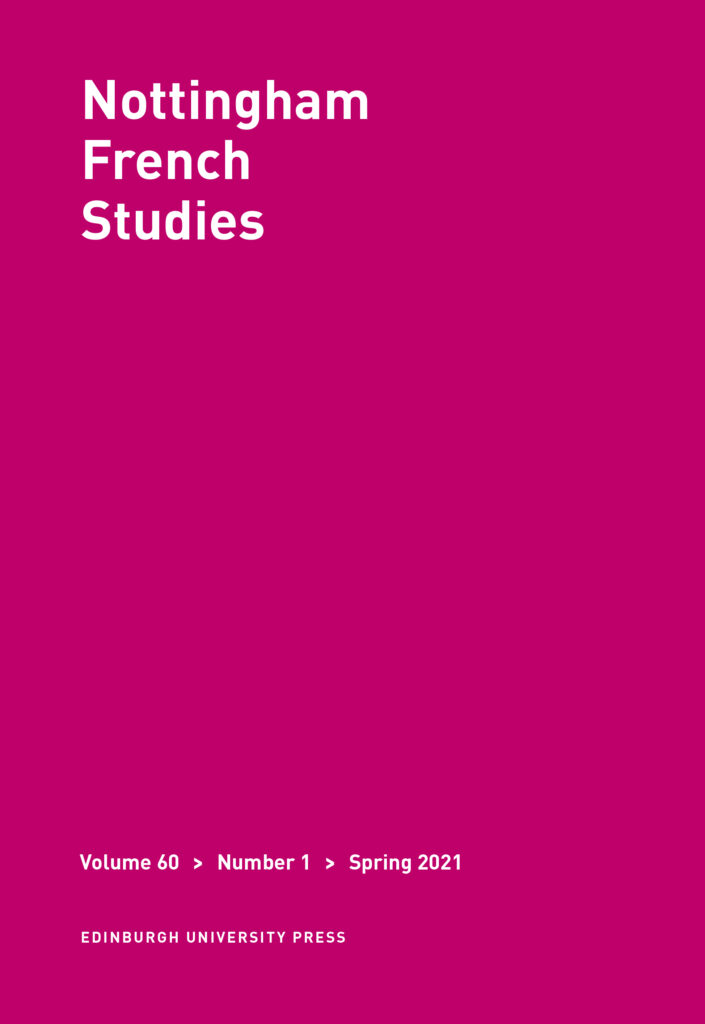
By Brigitte Nelrich
Note: This blog article has been reused with kind permission from the author. The original post can be found on the University of Nottingham blog.

Almost 20 years ago, I was working at the Institute for Science and Society located in the Law and Social Sciences Building (then called the Institute for the Study of Genetics, Biorisks and Society). I don’t know how it happened, but somehow I must have come across somebody telling me that people were establishing a Science Technology Culture Research Group over in the Department of French, across the road in the Trent Building, a department that I knew quite well, as I had done some replacement teaching there for Malcolm Offord in the 1990s. I was intrigued and went to one of their meetings. The group had been founded by Christopher Johnson who made me most welcome and I became a member of the group.

Chris Johnson was Professor of French in the School of Cultures, Languages and Area Studies and later head of school. His interests were broad, ranging over science, technology, culture, language and anthropology. One focal point of his research was ‘cybernetics’ through which all his interests connected – you can see in this brilliant poster produced to announce a 2010 conference.
The meetings of the group were an informal affair where members read things beforehand and then discussed them. There were also seminars and invited lectures and film screenings, for example Ex Machina in 2014. Amongst the visiting lecturers were Kevin Warwick (Reading University), N. Katherine Hayles (Duke University) and Margaret Boden (Sussex University).

Chris and I met once in a while for coffee in the Trent coffee bar. This was always the highlight of the day for me, as Chris was just so easy to chat to. During our last few meetings we discussed research funded by the Leverhulme Trust. I had inherited a research programme (‘Making Science Public’) in 2012 and, while it was coming to an end (around 2016), Chris was just starting a research project that focused on the theme of language, technology and aesthetics in the work of the French prehistorian André Leroi-Gourhan (see this posthumously published article). Then, in 2017 Chris died and this left a big hole in many people’s lives, including mine.
A special issue
There have been many memorial events and there will be quite a few memorial publications. One of them has just been published, namely a special issue of Nottingham French Studies, led by Chris’s colleague John Marks, entitled: “Science, Technology & Culture in Modern & Contemporary France: Essays in Memory of Chris Johnson”.
John has written a brilliant introduction to the volume describing in detail the work that Chris had been doing for himself and for others. John himself contributed a great essay on François Jacob: Bricolage and the Possible, which should be of interest to anybody who wants to know more about the history of molecular science.
I also have an article in the volume, which is less great, dealing of course with metaphors: Encounters between Life and Language: Codes, Books, Machines and Cybernetics. I tried to weave cybernetics into the story, an effort hampered by not being able to discuss this weaving with Chris who actually knew the history of cybernetics, systems theory and so on…
The other essays in the volume are by Yves Gilonne (La Télé-commande), Jonathan Hale The (‘Tectonic Sensibility’ in Architecture: From the Pre-Human to the Post-Human), Madeleine Chalmers (Living as we Dream: Automatism and Automation from Surrealism to Stiegler), and Henry Dicks (What Lies Concealed in the Roots of Cybernetics: The Renewal of Early Greek Thinking of Being as Physis in Martin Heidegger and Edgar Morin). They should be of interest to anybody working in the fields of French studies, history and philosophy of science, technology, architecture, literature and culture.
Metaphors and molecular biology
Here is an extract from John Marks article on François Jacob and bricolage – which should whet people’s appetite:
“This article will consider in detail the analogies, metaphors and concepts that Jacob develops in series of widely-read books: La Logique du vivant (1970); Le Jeu des possibles (1981); and La Souris, la mouche et l’homme (2000). One short and highly influential paper, published in 1977, must be added to this list: ‘Evolution and Tinkering’. In this much-cited paper (the text of a lecture delivered at the University of California Berkeley) Jacob introduced the metaphor of DIY tinkering (‘bricolage’ in French), which he had adapted from Claude Lévi-Strauss, as a way of understanding evolution in the light of recent developments in biology. As this article will show, bricolage functions as a broader, multi-faceted metaphor for Jacob: a kind of meta-metaphor. The idea of fortuitous connections, and of contingent routes navigated through a range of possible scenarios recurs throughout his work.”
And here is a little extract from my own article which also features François Jakob, the biologist, together with Roman Jakobson, the linguist, but in general focuses on the mystery as to why the language we speak about life was not inspired more by cybernetics and is therefore still not really able to capture life’s dynamic aspects.
“Cybernetics is the study of the regulation and ‘control’ of dynamic systems, be they mechanical, organic or electronic. Biology is the study of living organisms, often regarded as dynamic systems. There should, one might think, be a lot of cross-fertilization between these fields. However, such cross-fertilization is constrained historically and linguistically. […]
As I will show, most of the metaphors used to understand and talk about genes, genomes and DNA that emerged during the heyday of cybernetics and genetics in the 1940s and 50s have highlighted static rather than dynamic, product rather than process aspects of these phenomena. This in turn has contributed to popular (mis)understandings of genes, DNA or genomes as one-dimensional, deterministic, linear and fixed, rather than complex, flexible, random and dynamic.
As a consequence of side-lining the more complex, processual and dynamic aspects of cybernetics as a source for metaphors, scientists and lay people are trapped in a set of metaphors, and thus ways of thinking, which highlight the description of what DNA, genes or genomes are, or are supposed to be (a code, a book, a machine) rather than what they do. These metaphors also pervade speculations about what scientists, having achieved mastery over genes or genomes, are supposed to be able to do with genes and genomes (to code, to read, to edit, to write, to engineer). This overemphasizes the influence of genes on what makes us human and the supposed control that scientists have over genes.”
Nottingham French Studies is dedicated to the entire range of French and Francophone studies, including: literature, culture, postcolonial studies, gender studies, film and visual studies, translation, thought, history, politics and linguistics, and covering all historical periods from medieval to the 21st century. The journal aims to represent established as well as new and emerging areas of research in the field of French studies.






